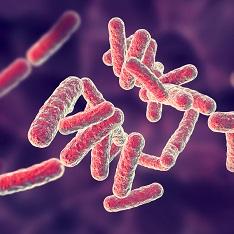Results from the study, carried out by scientists from Anglia Ruskin University (ARU) and published in the journal Ecology and Evolution, show the presence of the potentially dangerous Pseudomonas bacteria in over a fifth of samples collected (21%).
The researchers studied 115 swabs of wild bird faeces taken from around the River Cam over a two-year period. The faecal swabs were collected from locations within half-a-mile of the riverbank along a 10-mile stretch of the river in and around Cambridge.
Of the 115 samples, 24 contained the presence of Pseudomonas bacteria. Pseudomonas are a large group of bacteria which can be naturally present in the environment, and some of which are associated with animal and human disease.
Higher rates of Pseudomonas bacteria are normally associated with disease outbreaks in animal populations, and previous similar studies carried out in Spain and Slovakia have reported rates of between 2-10%. Pseudomonas bacteria may potentially be passed on to humans through cross-contamination.
One of the samples contained Pseudomonas aeruginosa, which is known to cause illnesses ranging from easy-to-treat ear infections to fatal lung infections and typically affects those with a weakened immune system. In the UK, Pseudomonas aeruginosa is the second most common hospital infection and approximately a quarter of people die from the illness.
The researchers then tested the effectiveness of five different types of antibiotics – cefepime, ciprofloxacin, gentamicin, levofloxacin, and meropenem – on each of the Pseudomonas bacteria isolated from the samples.
All Pseudomonas bacteria samples were found to be resistant to at least one of the antibiotics used on them, and three quarters were multidrug resistant, meaning they were resistant to two or more of the antibiotics used.
However, none of the Pseudomonas bacteria tested were resistant to all five types of antibiotics and only one of the samples – a strain of Pseudomonas koreensis, usually present in soil and not typically a cause of human illness – was resistant to meropenem, which is a last-line antibiotic strictly reserved for human medicine to preserve its effectiveness.
According to the O’Neill report, commissioned by the UK government and the Wellcome Trust, antibiotic resistance is a major global crisis that is causing 700,000 deaths annually. Unless tackled, this is estimated to increase to 10 million by 2050.
Lead author Joana GC Rodrigues, Associate Lecturer in Life Sciences at Anglia Ruskin University (ARU), said: “The River Cam runs through the centre of Cambridge and is an extremely popular spot for leisure activities such as walking, picnicking, and boating. Therefore, the results from our study highlight the importance of basic personal hygiene, such as washing our hands after being outdoors, due to the risk of cross-contamination.
“Surveillance is a key aspect of understanding antibiotic resistance but is often forgotten. Having up-to-date information about the presence of different bacteria and their resistance to antibiotics allows us to monitor our ecosystem health and act swiftly. “We know that antibiotic resistance is a global issue that will continue to worsen if no action is taken. The COVID-19 pandemic has further accelerated the emergence of resistance due to the overuse of antibiotics. Therefore, it is extremely important that everyone follows medical advice about when to take medication and for how long, in order to preserve their effectiveness.”
